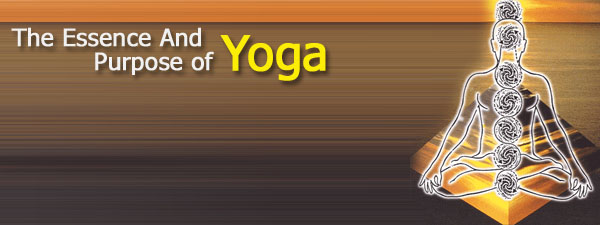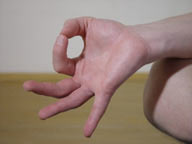
|
Jnana Yoga, or the yoga of knowledge, aims above all at 'knowing' the divinity.
The great aspiration of the jnani is the quest for the absolute truth. Only when this is discovered can the disciple immerse himself into what he always desired, by means of an act of 'self identification and incarnation'. The jnani is he who incarnates and manifests knowledge. He is faced with three factors to resolve: 1. The knowledge subject; 2. Knowledge, and 3. The object of knowledge. Way of Intuition: Slowly these three factors are fused together and become one. By means of knowledge, the object assimilated into the knowing subject. This is the way neither of the scientist nor of the the ologian nor of the simple intellectual. It is the way of the inruitive contemplative philosopher like Socrates, Plato, Plotinus and Sankara, the way of the metaphysician. The jnani operates using synthetical, plastic, extra sensitive thinking that leads to 'immediate discernment'. Path of Silence: jnana is the path of silence, intuition and illumination. It is not the way of passive devotion towards the Being about which one wishes to know nothing, nor the way made of acts of the will, nor the way of action, but it is the way of 'intuition discernment'. It is not the Western method which is more analytical, discursive and extroverted. To travel along this road it is necessary to withdraw into oneself, to create a centripetal movement. It involves a constant, daily meditative- contemplative attitude. Little by little, as the disciple removes what is not, he discovers and incarnates what is. Swami Sivananda in his book Jnana Yoga, says that the study of the Vedanta texts, especially the Upanishads can give a precise knowledge of Brahman. Reflection on what is heard leads to understanding and having grasped the principle one can meditate on the Self--constant awareness of this truth that leads to liberation. The danger of Jnana Yoga consists in dwelling only upon conceptual
cognition. If there is no real internal transformation ,one falls
into sterile and useless erudition. |
